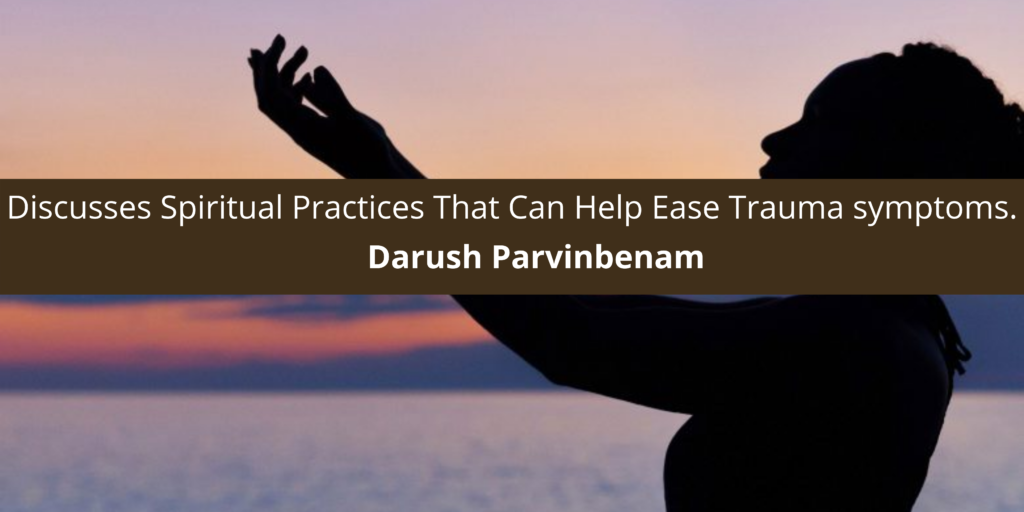Darush Parvinbenam Discusses Spiritual Practices That Can Help Ease Trauma symptoms.


Licensed counselor Darush Parvinbenam recently discussed spiritual practices that can help reduce anxiety, depression, and other trauma-related symptoms.
Spirituality has been positively influencing the lives of individuals for centuries. Recent research has shown that spirituality can be used to help treat certain mental health issues, including depression, anxiety, and trauma. Darush Parvinbenam is a licensed professional clinical counselor (LPCC-S) and a therapist at Renew Wellness Center.
Some of the spiritually based mindfulness practices Parvinbenam uses can reduce anxiety, and depression related to past traumas. He recently discussed how this can occur.

“Meditation has been proven to help active-duty military service members dealing with post-traumatic stress disorder,” Darush Parvinbenam said. “This research shows that spiritual practices, such as meditation, can improve the lives of anyone battling trauma, not just active duty service members.”
Darush Parvinbeanam explained that different forms of meditation have been able to reduce or even eliminate the use of psychotropic medications among many service members. It has also made it easier for them to control symptoms of PTSD.
“Traumatic stress has major effects on the brain,” Darush Parvinbenam said. “A report from Harvard Medical School stated that roughly 60 percent of Americans have experienced some kind of traumatic event.”
Parvinbenam stated that with so many people battling traumas, evidence-based spiritual practices, such as mindfulness and meditation should be recommended before taking further action, such as administering medications by mental health professionals.
Meditation and other spiritual practices can alter the function and structure of the amygdala, DMN, hippocampus, and more. These are parts of the brain that affect decision-making and impulses. Regularly practicing meditation, mindfulness training, and even prayer can help reduce the chance of hyperarousal and debilitating side effects associated with PTSD and other traumas.
“Spirituality involves a person’s belief system,” Darush Parvinbenam said. “A major trauma can harm this spirituality, reducing a person’s faith in a higher power or other beliefs. Spiritual practices might be able to restore a person’s belief system and provide a ‘relaxation response’ that is often accessed through meditation or prayer.”
Parvinbenam finished by explaining that spiritual practices can also connect a person with a much larger community. This community can provide social support and ways of coping that can’t be found elsewhere. This sense of community can reduce feelings associated with loss, grief, depression, and loneliness. Individuals who perform spiritual practices may have a lower chance of behavioral risks.
“Spiritual practices support superior mental and physical health,” Parvinbenam concluded. “The benefits of spiritual practices are infinite for those dealing with traumas of all origins. I hope more experts will begin prescribing meditation and mindfulness before resorting to prescription medications.”
